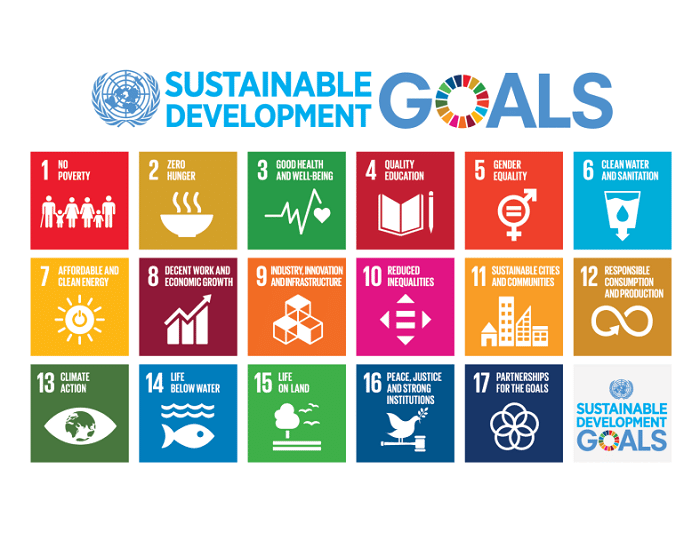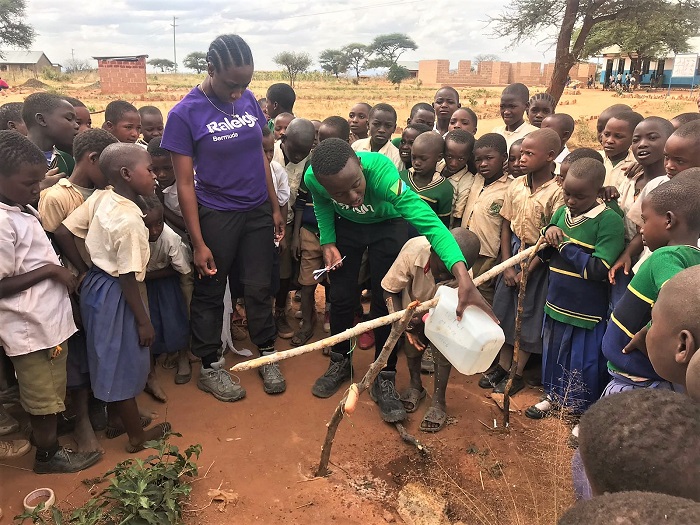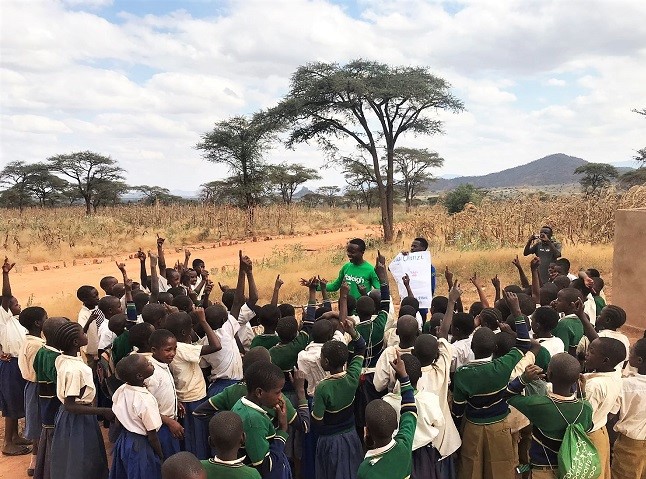Raleigh and the SDGs
What are the sustainable development goals?
On the 1st January 2016, the United Nations created seventeen Sustainable Development Goals (SDGs), also known as the Global Goals. These goals build on the accomplishments of the Millennium Development Goals (MDGs) and aim to go even further to end all forms of poverty by 2030.
“This Agenda is a plan of action for people, planet and prosperity.” (UN)
These new goals are unique because they call for action by all member countries and their citizens to promote prosperity for all whilst also protecting the planet. They recognise that ending poverty must go hand in hand with strategies that will improve economic growth both on national and international levels. The SDGs address a range of social issues including education, health, social security and job opportunities. At the same time they tackle the global issues of climate change and environmental protection.
The SDGs that Raleigh’s programmes are actively working towards achieving:

How our WASH projects in Tanzania are contributing to the SDGs
Currently, Raleigh Tanzania has teams working with four communities to continue its long-term Water, Sanitation and Hygiene in schools (SWASH) programming. Volunteers are constructing toilet blocks to give girls, boys and children with disabilities access to clean toilet facilities while at school. The benefits of these new facilities and the supportive knowledge that Raleigh offers are numerous and can be life-changing.
The aims of this work directly align with Goals 4: Quality Education, 6: Clean Water and Sanitation and 5: Gender equality. Each goal is broken down into specific targets which make the SDGs more addressable. Here are some of the ways that Raleigh’s WASH programme contributes to achieving the goals through these specific targets:
By 2030, achieve access to adequate and equitable sanitation and hygiene for all and end open defecation, paying special attention to the needs of women and girls and those in vulnerable situations
School attendance in rural Tanzania is regularly affected by preventable illnesses such as diarrhoea. Handwashing alone can reduce the occurrence of these illnesses. This is why volunteers work with students and teachers to change behaviour. This is achieved by promoting the six stages of handwashing, alongside the construction of handwashing stations.

Ensure women’s full and effective participation and equal opportunities for leadership at all levels of decision-making in political, economic and public life
Many girls living in rural areas in Tanzania drop out of school or miss lessons once they reach puberty. The toilet blocks that are being built will all have a specific menstrual hygiene management (MHM) room. The aim is to provide a clean, private and safe space for young girls to take care of themselves during their period. These rooms will enable them to feel comfortable while in school and to engage in a quality and uninterrupted education. Increasing gender equality in this way allows more girls to remain in school which leads to equal employment opportunities later. Therefore, women in rural Tanzania should have improved access to financial income and leadership opportunities.
By 2030, eliminate gender disparities in education and ensure equal access to all levels of education and vocational training for the vulnerable, including persons with disabilities, indigenous peoples and children in vulnerable situations
The new toilet blocks are constructed in a way which will allow and encourage children with disabilities to continue their education. Each block contains a carefully designed, accessible toilet.
Support and strengthen the participation of local communities in improving water and sanitation management
Young people, and children in particular, are efficient at influencing both their peers and older generations. Raleigh Tanzania’s SWASH work generates an impact beyond the schools we work with. Evidence shows that children share their knowledge at home with their families. This helps change sanitation and hygiene behaviours in the wider community. This means that the work of volunteers has a positive and lasting impact on the health and well-being of the entire community.

With the ongoing support and encouragement of Raleigh’s young volunteers, the rural Tanzanian villages we work with will have new toilet blocks. The villages will also have an increasing number of handwashing stations in schools and homes. This will contribute towards the highly important overall aims of the SDGs.
Written by Expedition volunteers Tevin Daniels and Chelsea Pereira-Swainson. Edited by Communications Officer Lou McGowan.
Interested in doing an Expedition yourself?
Explore our Expedition resources
Hear directly from Raleigh alumni and get your questions answered.
You’ll find everything in one place about our Expeditions.
Send us an enquiry with what you’d like to know more about.



